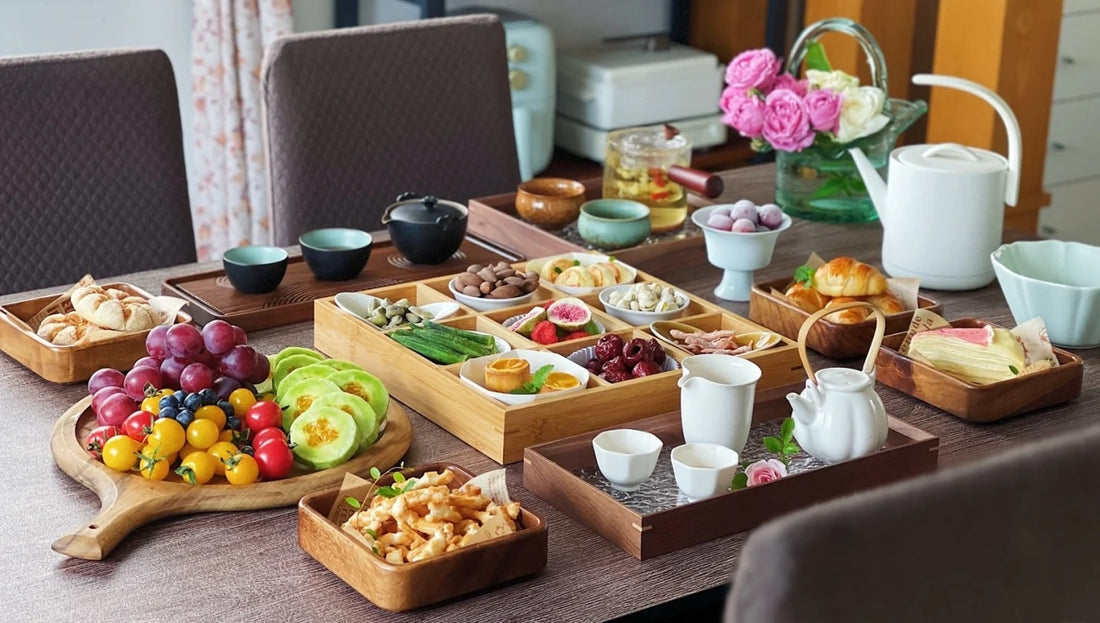Is Drinking Tea on an Empty Stomach Bad for You?

Share
As an ancient tea saying goes: "Drink enough tea, and all diseases can be cured." It turns out this quote really has seeds of truth, as a wide range of scientific studies show that regular tea consumption has many beneficial effects on our health.
While in Ancient China, tea was considered a medicine, nowadays, it's regarded as a source of pleasure. Yet, while most tea lovers know that tea should still be consumed in moderation, it's not always clear when you should and shouldn't drink tea. One frequent question we get is whether it's safe to drink it on an empty stomach.
For most tea drinkers, tea doesn't cause any side effects. However, excessive consumption of tea can cause serious side effects, as we explained before in this blog post, with stomach-related issues being one of the most common.
In this blog post, we will explore in more depth the topic of drinking tea on an empty stomach, discussing acidity, caffeine & tannins, and the concept of 'cooling' and 'warming' teas. In addition, we'll offer advice about when it's the best time to enjoy tea.
Drinking tea on an empty stomach
While many tea enthusiasts may not encounter stomach discomfort, it can occasionally occur. Therefore, it's wise to understand how to prevent it. Stomach acidity is an important concept that we should understand, which we'll discuss in the next section.
1. Tea acidity
From a technical point of view, drinking tea on an empty stomach is not advisable because most teas are slightly acidic and can alter stomach acidity. An overly acidic stomach can lead to a variety of uncomfortable symptoms such as heartburn, a burning sensation in the chest caused by acid reflux, where the acid moves back up the esophagus. Moreover, this condition can affect nutrient absorption.
That said, it's important to know that tea is way less acidic than coffee. So, if you don't experience any discomfort drinking coffee on an empty stomach, tea likely won't cause any stomach discomfort. Finally, drinking tea generally won't cause stomach acidity in itself, unless consumed excessively. However, it may worsen conditions for those who already suffer from stomach acidity.
2. Caffeine & tannins
Tea contains caffeine and tannins, which are known for their aggressiveness on the digestive apparatus. If you suffer from digestive or stomach distress, you may want to avoid drinking tea or consume tea in moderation.
Here are some potential issues you may encounter if you're sensitive to caffeine and tannins and drink tea on an empty stomach:
- Digestive discomfort: Tea tannins and caffeine can irritate and inflame the stomach, causing nausea and dizziness, heartburn, bloating, jitters, anxiety, and energy crashes. This is especially true for those who are sensitive to caffeine.
- Fatigue and irritability: Tea can influence blood sugar levels, leading to fluctuations that might cause fatigue or irritability.
- Disrupt natural cortisol production: drinking tea early in the morning (even more so on an empty stomach) can disrupt natural cortisol production for some people. This hormone regulates the sleep-wake cycle, and its disruption can result in fatigue and sluggishness during the day.
3. TCM: Cooling and warming teas
Traditional Chinese Medicine (TCM) offers another perspective related to stomach discomfort when drinking tea. Tea can be classified as 'cooling' and 'warming', and it really depends on an individual's body condition to determine what's good for certain person.
For example, people who often suffer from cold hands and feet generally have insufficient blood circulation. Thus, it's better to drink 'warming' teas to boost energy levels and improve blood circulation. Black tea, dark oolong tea, aged white tea, and ripe pu erh tea are considered warming teas.
On the other hand, people who are often stressed and suffer from bad skin or acne often suffer from too much 'heat' or 'inflammation' in the body. For those people, it's generally more appropriate to drink 'cooling' teas such as green, fresh white, light oolong, and raw pu erh tea.
Finally, it's important to know that herbal teas can be either 'cooling' or 'warming'. For example, chrysanthemum flower tea is considered cooling, while ginger tea is warming.
The concept of cooling and warming teas can also be extended to a seasonal tea-drinking practice. For example, in Summer and Spring, people naturally reach for 'cooling' teas, while in the colder seasons, one may more often drink warming teas.
How do you prevent any type of stomach distress?
Once again, ancient Chinese wisdom can help us prevent stomach issues. Traditionally, tea was served with refreshments, like nuts or small stuffed cakes, which would mitigate the side effects that tea may cause to the stomach.

In the same way, you may want to enjoy some snacks during a tea session in order to avoid any repercussions. This may also be a lot of fun, as you can experiment with pairing teas with your favourite sweet or savoury nibbles.
The right time to drink tea
Having said that, we wouldn’t recommend drinking tea during a meal as it can interfere with nutrition absorption. The ideal time to enjoy a cup of tea is between meals, such as in the middle of the morning or afternoon, at least one hour after finishing your meal.
This approach ensures that the tea does not disrupt nutrient absorption or cortisol production, and having a snack can help prevent any stomach discomfort. However, if you are particularly sensitive to caffeine, have stomach-related issues, or can’t resist your first cup of tea in the morning, consider switching to herbal tea to avoid any adverse effects. Herbal tea is a perfect substitute for tea as it's caffeine-free, and like regular tea, there's a lot of choice!
